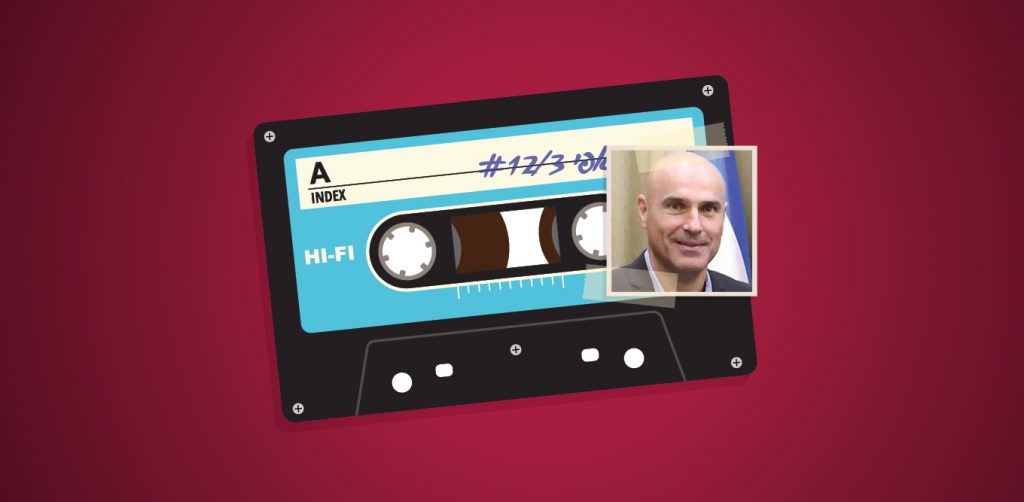A good many people are wracking their brains in an effort to recall exactly what they told Effi Naveh, how they got swept up in his jargon, and why the hell they didn’t stick to their true voice
In private conversations, the linguistic register changes. Tongues loosen. The barriers of “officialness” fall away. People allow themselves to express themselves freely, they use obscene language and gut talk, say what’s on their mind. The Effi Naveh and Avichai Mandelblit recordings prove the point. Two lawyers, skilled politicians, men who have a say in things, who, in a private meeting between “friends”, chattered away freely, dirtying themselves as though they hadn’t a care in the world. Had Mandelblit known he was being recorded, he would, no doubt, have sounded otherwise, but he got carried away, opened up, and paid the price. That’s how it is when you’re dealing with wolves, especially when they are backed into a corner: they bare their fangs, or in this case, their recordings.
Some of us may recall another public figure who was unknowingly recorded and was heard calling his boss a “jerk”; MK Miki Zohar, a loyalist of Prime Minister Benjamin Netanyahu, said this of his boss and idol, when the latter failed to endorse the Likud candidate for mayor of the city of Bat Yam. Strange and wonderful things happen in private conversations. People “stoop low”. Mandelblit, who was heard criticizing State Attorney Shai Nitzan, said that the conversation had taken place “in the heat of the moment”, but of course there’s more to it than that. When we talk to different people, the way we talk is different. People, especially politicians, know how to adapt to the situation – and the listener. It is not by chance that the words were spoken to Effi Naveh, and in that particular style.
Naveh was wooed by all. Everyone sought him out, sought an audience with him, and so during that audience, everyone adopted his jargon. Now that the recordings are coming out, everyone will presumably be heard talking with that same “loose tongue”, using that same aggressive, antagonistic, direct, almost violent language. Why was it so easy, with Naveh in particular, to sling mud and shoot poisoned arrows at colleagues? According to publications and the charges against Naveh, at least, this is the type: belligerent, vindictive, devious. Someone who attracts dirt, thrives on gossip, maybe even finds pleasure in it, not to mention usefulness.
“Why did the fish get caught?”, goes the old joke. “Because it opened its mouth”. Once, clandestine recordings required technology that was reserved for spies and James Bond. Today, when any kid can install an app of this type, you need to watch your mouth – or at least know in whose presence to open it.
One can only imagine the pressure and panic among members of the Israeli political arena, after Naveh made it official and patently clear that he had recordings and wouldn’t hesitate to use them, that he had no intention of going down alone. One can only imagine how a good many (or many good…) people are wracking their brains in an effort to recall exactly what they told their pal Effi, how they were led to say things they did not mean to say, how they were carried away by the conversation, how they allowed themselves to open up and let go of what was weighing on their mind at the wrong time, before the wrong person, who already then had begun to stockpile ammunition and prepare for the greatest battle of his life. But there’s more to the story: a good many may well very soon find themselves “being let go of”, with the accompanying heartache and mortification. They will not be able to figure out what happened to them, what led them to speak that way, to say things that it wasn’t like them to say, and they will regret the loss of themselves and their identity.
Therefore, and in the interests of not blowing a lot of hot air, let us bear in mind – no matter who you’re talking to, and no matter how much you need them, keep an eye on your language register. Be yourself. Don’t try to sound like the person who knows that he calls the shots. And also, treat every conversation (professional, we hope) as though it’s being recorded. Every conversation. And hey, we’re all for lean, restrained talk. Because there’s nothing like an understatement.

